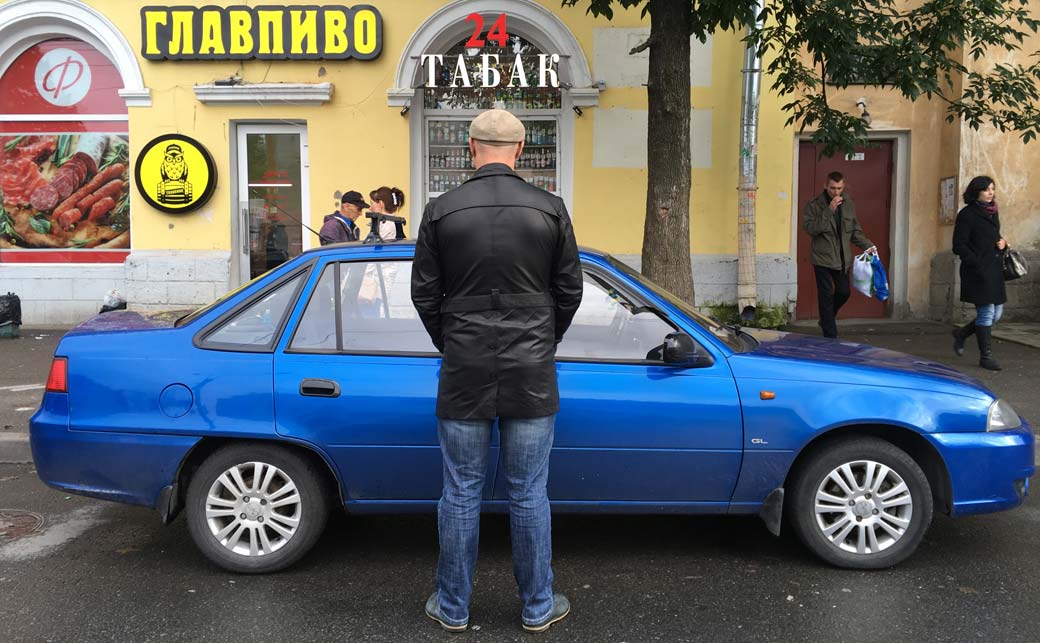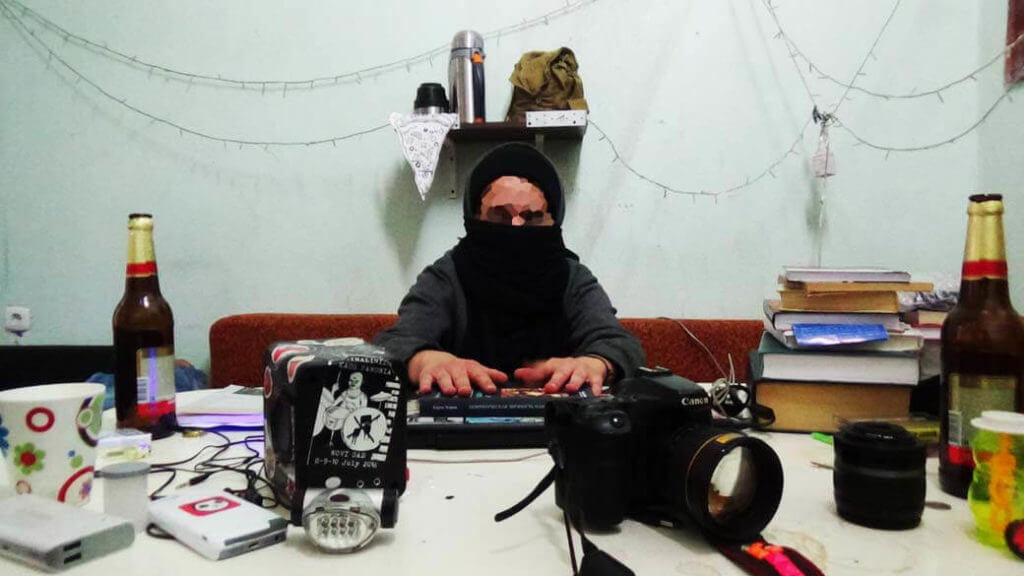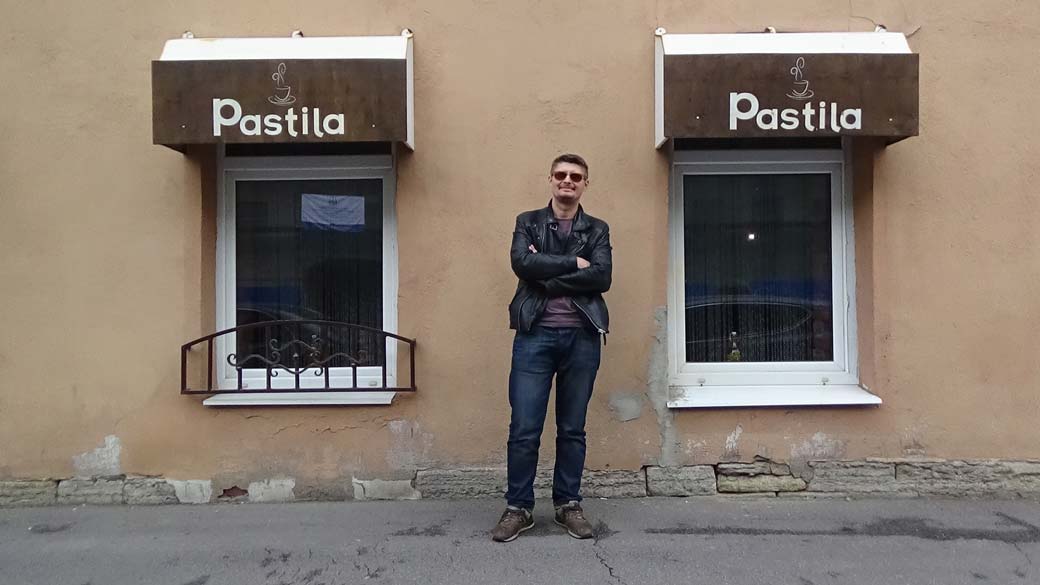Today, drug use in Russia has very little in common with its 90’s incarnation. The substances are different. It used to be all about opium, acid, stimulants. Nowadays, the drug addiction centers are mostly frequented by those using designer drugs, such as the Spice [ed. synthetic cannabinoid]. Even the users are different. Drugs used to be related to a subculture, taking them was almost an ideology declaration. Punk rock, hardcore or rave. „Drug addicts” used to live on the edge, they didn’t have any reservations; they took whatever and however long they could. Nowadays, they seem to be much more…. docile. They have regular jobs. They work like the middle class, and they take drugs like the middle class too.
I met Max, Olga, Anna, Jurij, Varia and Andrej in Moscow. Some of them used to be on drugs, some are on them still, some just work in the drug trade. This is a selection of short, raw bits of our conversations.
Amphetamine used to hit you hard and drive you for 12 hours. Not so anymore.
Max
‘I hate her. I wish I could kill her. She is old, dirty, ill, she just wanders around the house, she stinks’, says Max about his mother. ‘If I could, I probably would have done it’.
He is 42, and comes from Petersburg. He’s taken drugs for almost twenty years. He spent time in jail on seven seperate occasions; For some, he does not even remember where exactly he was jailed.
‘I was in there with faggots, there is no point lying about that. I was 18 when I went to prison for the first time, I did something wrong, went wrong about some business. And for that I was sent to the faggot-place. I know that for most people who come to the meetings [ed. Drug Addicts Anonymous] this is something totally impossible to swallow. They have their fixed ideas about this sort of things. But the point is, in order to quit taking drugs, I have to undergo a full transformation, de-armour all my triggers, be radically and painfully honest with myself. And this, as you can see, can change stereotypical thinking. So, free your mind!

Max has been clean for the last 7 years. He has a family, a child. He is HIV-positive, and went through long and difficult HCV and TB therapies. He works a lot and takes an active part in therapy.
‘When I compare usage in the 90s and now, I see a huge difference, in many respects. First of all, the drugs themselves – their kind and quality. In the past, it was possible to make Pervitin from cough syrup containing ephedrine. Heroine was not on the scene, it only appeared at the end of the 90s. Instead, we used to take opium (the so called ‘compote’),all home-made. In the Caucasian markets, they started selling ‘chanka’ – an opium plasticine. After you added 100% vinegar and evaporated it, you could inject the drug. The labs only made amphetamine and ‘acids’, not LSD, MDMA and the other Shulgin’s ‘2C-’s that everyone is taking right now.
Amphetamine was so different then, that I wouldn’t even touch what we have now. Amphetamine now is – how should I put it – just a stimulant, a bit stronger than coffee, it hits your engine, and increases your activity. It makes you a bit high, but there is no comparing it to what we had before – a strong kick start, and an oscillating flow for the whole 10-12 hours. I don’t know if the old one was dirtier, or if the new one has a completely different formula, but the fact is – they are two different substances.
Secondly, the authorities’ approach to drug users and dealers has changed. I don’t know why it happened, but now it is much stricter. Very different.
In the past, if I got jailed for a few days for having 2kg of marijuana, a petty bribe got me out. But that twenty years ago. I can’t even imagine what would happen if I got caught with something like this today. It would be ‘large scale dealing’ and a minimum of 20 years behind bars.’
Every year it is getting worse and worse.
Olga
31, lawyer. She works on cases of people charged with possession and dealing with drugs.
‘Sentences are getting longer and the charges more and more serious. You can get as long as 5 years for having just a few bits of weed. I know a few people that had been caught under the influence, but didn’t have anything on them – they still got a year or two years in prison. The last several months have been even worse. I don’t know if it is about the coming elections or the World Cup, but it doesn’t matter.Either way the decision by the top authorities to clamp down on drugs is very palpable.’
The worst situation is in the prisons.
Anna
‘Jails are overflowing with drug addicts. About 90% of inmates are addicted to drugs’ according to Anna, 29, a psychologist working in the Kresty penitentiary institution in Petersburg. ‘And there is no real therapy here, because to this conservative, right wing, populist government these people are worthless. It would be best if they just disappeared. Our country is not interested in treating them, and that is why we have no state-run rehab centres. Most of the centres are private.’
They only imprison small time dealers.
Jurij
‘Changes are made only when someone at the top has a personal experience with drug addiction, e.g. when their child is an addict’ says Jurij, 34, a psychologist working in a private rehab centre for drug users in Zelenogorsk, which opened in 2000.
‘Only then do we start to have donations for addicts, some financial support, etc. But on its own, the country is trying to avoid dealing with the problem. Maybe because the country is itself involved in drug deals? It is no secret that the whole business is run by the Central Drug Inspection Office together with the police. And maybe that is why they are so eager to jail people who have sold a few grams on the side, not those who sell the whole truck-loads.’
I just take it to work.
Waria
At 28, Waria graduated with a degree in Political Science from Moscow University. She wanted to do her PhD, but did not got accepted. She then moved from Moscow to Petersburg, where drugs are cheap and ubiqutious. She lives in an anarchist commune and works in an alt bookstore/publishing house.
‘I usually take it when it’s already late and I still need to do some work – prepare and send out information to a lot of people. And then, in the morning, I need to go to the bookstore, and we have an event there in the evening, so I need to be in a good shape. But it’s all right, I haven’t got any bad trips on amphetamine for ages, afterwards I just feel weaker, but it is really nothing like it used to be when I started taking. My body might actually be benefitting from it, you know, everyone is different. Nowadays, when I take it, I can eat, sleep and do everything as normal. And all is well, it helps me focus on my work. You know, neurotic people can never focus. So why torture myself if there is Speed?

It’s Friday, party-time, you go to a techno gig, and then back to work and start it all over again.
Andrej
‘Heroine has had a very negative PR coverage. Everybody knows those “heroine drug addicts” looking like shit, HIV-infected, etc. Sid Vicious is dead. Now people want to be better ‘drug users’. You’re no longer a heroine-addict, you don’t steal, you don’t inject, you just sniff it all clean on a Friday, you go to a party, a concert, a techno gig, with pals, everyone is having fun. And then you go back home and back to work, so that next week you can do it all over again’, says Andrej, 42, a businessman, who took heroine for almost twenty years. Andrej used to be a wholesale opium dealer. In the 90s, he ran a small drug empire in Petersburg. He now goes to anonymous therapy.
‘I don’t sniff it, never. It’s shit. I only inject. You have to have some respect for the stuff you’re taking. It is such a childish hypocrisy to go about sniffing it – you’re kidding yourself.’

**
Translated by Katarzyna Byłów-Antkowiak
![Political Critique [DISCONTINUED]](https://politicalcritique.org/wp-content/uploads/2015/09/Political-Critique-LOGO.png)
![Political Critique [DISCONTINUED]](https://politicalcritique.org/wp-content/uploads/2015/09/Political-Critique-LOGO-2.png)